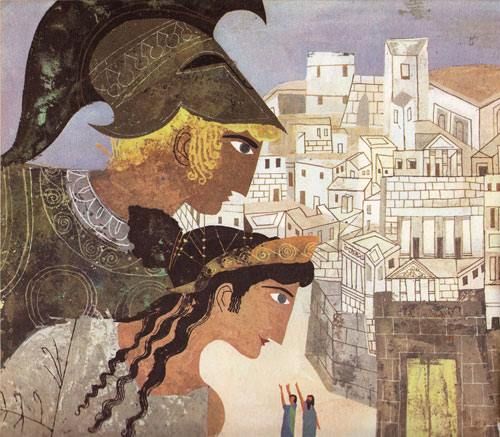
“Hateful to me as the gates of Hades is that man who hides one thing in his heart and speaks another”
wrote Homer in his timeless epic Iliad, which is considered as the invaluable pillar of ancient Greek literature. This outstanding masterpiece, presumed to be written around 700-800 BC, is set during the Trojan War, the ten year siege of Troy by the allied Greek kingdoms under the rule of Agamemnon.
The myth begins with the beauty contest between Aphrodite, Athena and Hera. Aphrodite promises the jurist, Paris that should he elect her as the winner of the contest, then he can have the most beautiful woman among the mortals on earth. This irresistible woman is Helen, the wife of the Achaean king residing on the Greek mainland, later to become known as the beautiful Helen of Troy. After this discussion Aphrodite wins the contest. Consequently, Paris captures Helen and brings her to Troy, the land where he normally dwells.
The city of Troy overlooking the Aegean Sea is described as a beautiful town of her times. The inhabitants living in affluence were advanced in civilization and war skills for they used it to defend their city against the frequent attacks from Greece, their close neighbor across the Aegean Sea.
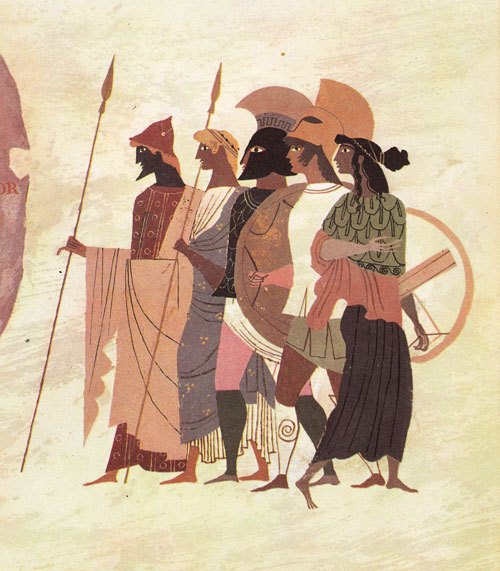
Cassandra was the daughter of King Priam and Queen Hecuba of Troy. She was granted by the gift of prophecy -of foretelling the future – by Apollo and yet she was cursed by him because she refused to give in to his wishes. The curse was tough to bear because as much as Cassandra could lucidly foresee the future nobody would believe her prophecies. Moreover, she was looked upon as a lunatic, often insulted and whatever she foresaw was disregarded even by her family. She has warned Paris not to bring Helen to Troy for she knew that would be the cause of war. Upon arrival of Helen, she told the Trojans that Greeks will destroy Troy and to help prevent it, Helen should go back. Cassandra also predicted that after the fall of Troy, her cousin Aeneas would escape and found a new nation in Rome. Though nobody would consider her prophecies seriously she would continue to speak the truth with courage and dignity. In her times of solitude, she would withdraw in the temple of Athena.
It was time again that Greeks decided to attack Troy inspired by Athena. In the Trojan war scenario, gods took side of either Greece or Troy. The myth recounts that Apollo, Artemis, Ares and Aphrodite was on the side of Troy and Athena, Hera, Poseidon and Hermes were sided up with Greece. Athena motivated to support the Greeks against Paris and the Trojans, came up with the new war plan –a huge wooden horse filled with soldiers would be presented as a gift to Troy. She was confident of her genius plan would conquer Troy. Her argument to Zeus was to save Helen and bring her back to her husband’s kingdom in Greece. However, according to Homer’s Iliad, Helen chose to go to Troy with Paris, but somewhat regretted it later.
Nevertheless, the ships loaded with the big horse set sail. It was going to be like no other attack done before, even the wind was in favor of them.
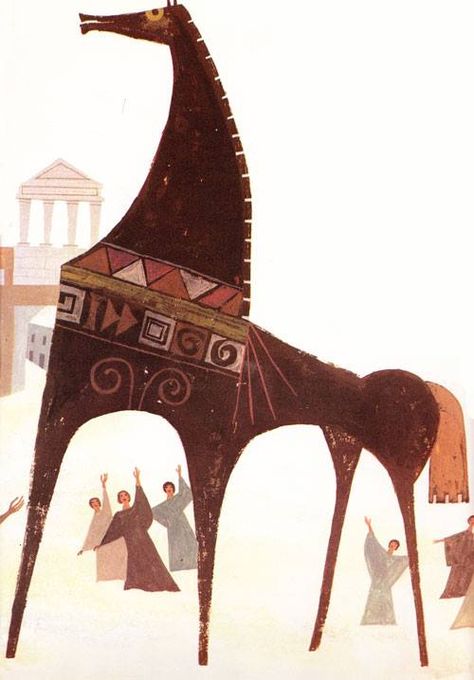
Cassandra relentlessly warned people, but it would not change the curse. Still nobody believed her. Thus the Trojans blindly accepted the “gift” and allowed the horse to be embarked on Trojan land. Cassandra in her pain and agony grabbed a torch and an axe to break the horse and to show the evidence but she was insulted for being totally mad and prevented by the Trojans. The prophecy was to be fulfilled, Troy was destined to be conquered.
When Achilles, the invincible warrior killed Cassandra’s heroic brother Hector, that became the breaking point of Troy.
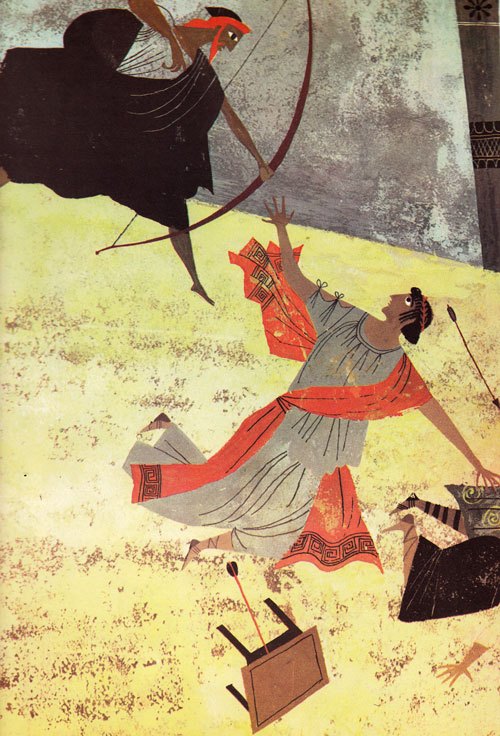
Having witnessed the death of Hector and his body being dragged by Achilles’ chariot, Cassandra, in her tormented state took refuge in the Temple of Athena. The temple though equally sacred for the Greeks, it would not stop the greek warrior Ajax to break in to abduct her.
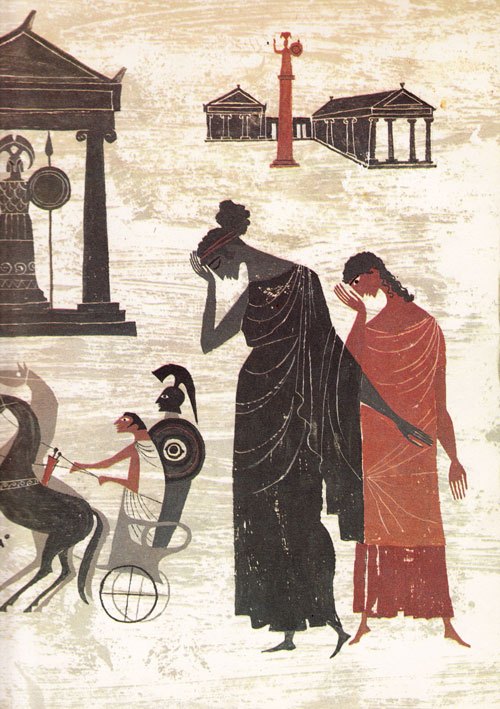
The dragging of Hector’s dead body behind the chariot and the abduction of Cassandra caused the rage of gods; Aphrodite and Apollo decided in unison to punish the Greeks.
They decreed that the Greek ships may not find their way home and should spend years on the sea, battling with the sirens and even worse evil forces on their way back, that is, if they can go back at all. This long journey across the Aegean lasted for ten years. The fall of Troy and and the workings of the divine plan during the return journey of the Greek fleet is recounted masterfully in Homer’s second epic Odyssey. “How victory passes back and forth between men…” he wrote , alluding to the cycles of life :
Like the generation of leaves, the lives of mortal men. Now the wind scatters old leaves across the earth, now the living timber bursts with the new buds and spring comes round again. And so with men: as one generation comes to life, another dies away.

According to the common legend, after leaving Troy, Agamemnon and Cassandra were killed by Agamemnon’s wife and her lover. Another legend recounts that Cassandra managed to get away and lived a saint-like life on her own somewhere in Greece or Turkey. The truth is known by gods.
Duygu Bruce
Illustrations: Alice and Martin Provensen







